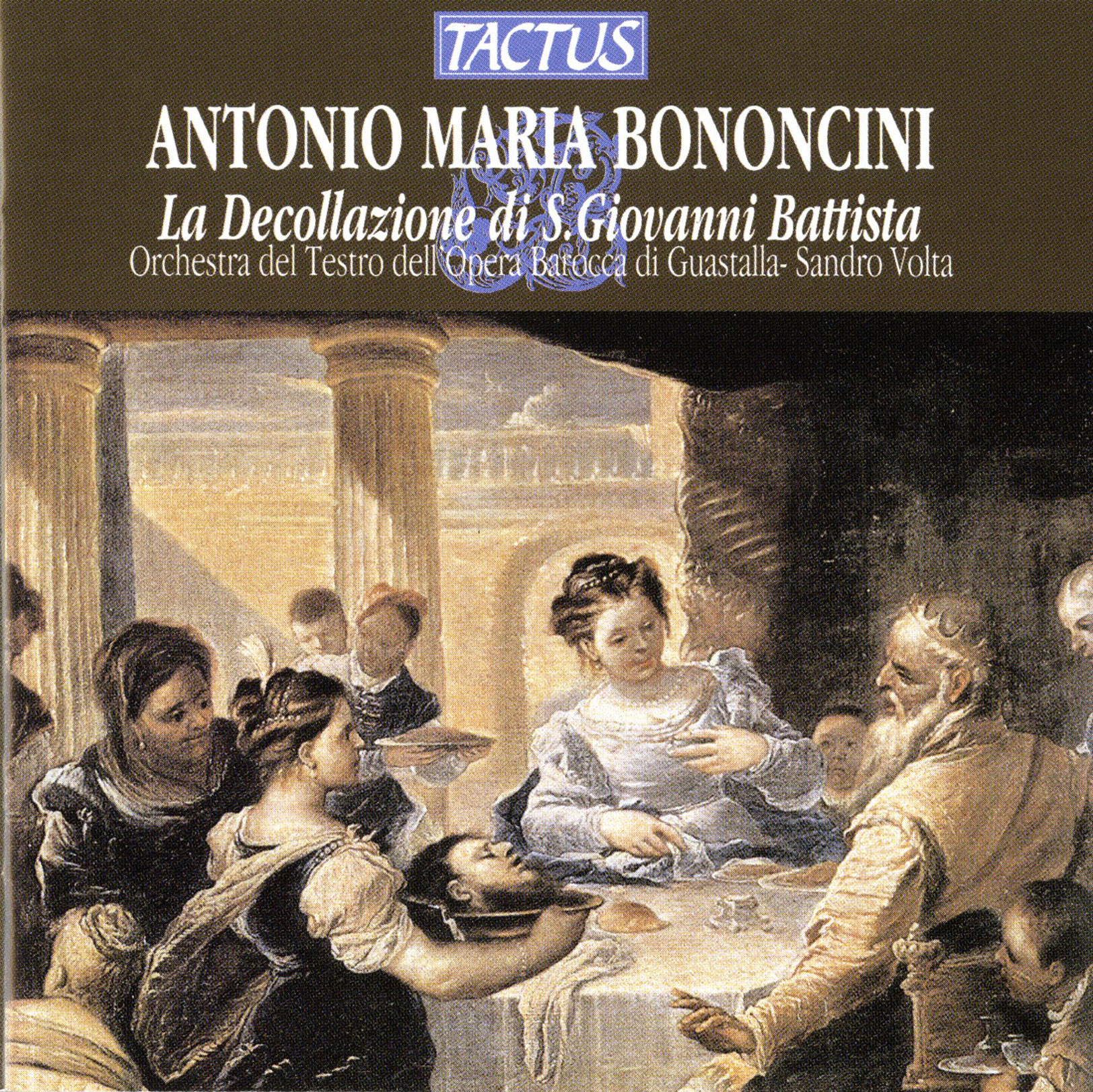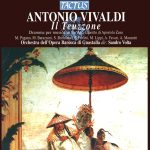BONONCINI ANTONIO
The oratorio La decollazione di S. Giovanni Battista by Antonio Maria Bononcini is a worthy representative of the little-known tradition of oratorios in the Italian language composed at the Hapsburg court, a tradition which was quite widespread between the second half of the seventeenth and the first three decades of the eighteenth centuries.
This genre, now considered to be an appendix of the opera, played instead a significant role in the religious-musical events of the imperial court, where Italian culture in general and the language itself represented more than mere aesthetic models. Instead—and perhaps these are two sides of the same coin—their use had taken on a strong political connotation.
It is no coincidence that Italian had become, from Leopold I onward, the official language of the court and of the monarchs of an empire which proudly qualified itself with two adjectives: Holy and Roman.
At the beginning of the eighteenth century, authors such as Johann Joseph Fux, Antonio Caldara, and Giovanni and Antonio Maria Bononcini brought the Viennese oratorio to his greatest heights, clarifying the stylistic differences which distinguished it from contemporary opera. Above all, they turned to the stile severo: a rigorous style characterized by simple but effective counterpoint and a moderate use of virtuosity in the vocal parts.
Tracklist
Bononcini, Antonio Maria
La decollazione di San Giovanni Battista
1 - Sinfonia (4:19)
2 - Aria: Perche il Sole (Battista) (4:05)
3 - Ritornello I (0:44)
4 - Aria: Gia costretta dal martir (Erodiade) (5:13)
5 - Ritornello II (0:33)
6 - Ecco a tuoi cenni (Salome, Erodiade) (2:15)
7 - Aria: Si cadra la cervice (Salome) (3:41)
8 - Al prigionier Battista (Angelo) (1:00)
9 - Aria: Festivi, giulivi (Salome) (2:43)
10 - Coro: Rapido da te lungi (Chorus) (1:41)
11 - De la tua vita (Salome) (0:34)
12 - Aria: De le palme (Salome, Erode) (1:22)
13 - Fortunata mia Salome (Erodiade, Salome, Erode) (1:34)
14 - Aria: Nulla si nieghi, tutto si doni (Erode) (4:39)
15 - Ombre che qui d'intorno (Battista) (1:44)
16 - Aria: Bacio l'ombre e le catene (Battista) (7:19)
17 - In quest'orror profondo (Angelo) (0:51)
18 - Aria: Tu che sei nume di pace (Battista) (3:27)
19 - Et ancora i tuoi voti (Angelo) (0:39)
20 - Aria: Tardi diviene all'ira (Angelo) (2:47)
21 - Figlia gia fausto arride (Erodiade, Salome) (1:24)
22 - Aria: Clizia, che e amante del sol (Salome) (3:00)
23 - Eccomi vincitrice (Erodiade) (3:00)
24 - Ecco o madre (Salome, Erodiade) (0:48)
25 - Così d'empio livore (Angelo) (0:29)
26 - Coro: Muore il giusto (Chorus) (3:59)
- Composer: BONONCINI ANTONIO
- Performers: Il Battista-Micael Van Goethem; Erodiade-Maurizia Barazzoni; Salomè-Daniela Piccini;Angelo-Fernanda Piccini; Erode-Virgilio Bianconi; Orchestra dell’Opera Barocca di Guastalla – direttore Sandro Volta; I violini: Dario Luisi (solo), Matteo del Soldà, Elia Facchi; II violini: Igor del Vecchio (solo), Silvia Colli,Cristina Palucci; viole: Aurelio Bianco (solo), Marco Giacintucci; violoncelli: Marco dal Bianco (solo),Giovanni La Marca; violoni: Luca Maria Grassi (solo), Fabio Conte; cembalo e organo: Sara Dieci, Francesco Moi; Maestro di concerto: Dario Luisi
- Historical Period: Late Baroque
- Code: TC 675201
- Edition: 1999
- Barcode: 8007194101300
- Set: 1
- Total tracks: 26
- Total duration: 01:04:09






